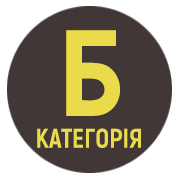BIBLICAL GLOCKALISM IN JOSEPH WITTLIN’S NOVEL “THE SALT OF EARTH”
DOI:
https://doi.org/10.32782/folium/2024.5.13Keywords:
Polish literature, intertextuality, biblical glocalism, biblical stylizations, «Austrian myth», World War I, Józef WittlinAbstract
Based on the analysis of Joseph Wittlin’s novel «The Salt of the Earth», the article examines the specificity of biblical glocalism in the literary text. It was found that the story under study is an example of the authors narration of allusive and intertextual biblical parallels. It has been established that the epicness of «The Salt of the Earth" is also achieved by biblical stylizations through the synthesis of historical events and life conflicts of the heroes of the work. The thesis is proposed that Joseph Wittlin’s use of biblical stylizations does not turn the novel «The Salt of the Earth» into a stylized «biblical» work, as it is only one of certain techniques of artistic means that contain the latent and immanent presence of the biblical text, its themes, motifs and images. The conclusion is substantiated that biblical glocalism in Joseph Wittlin’s novel «The Salt of the Earth» makes it possible to reactualize the religious, cultural and historical codes presented in the Bible, contribute to the «rooting» of the recipient in the era presented in the text of the story, as well as to implement biblical stylizations in the national language, particularly Polish. The study showed the adequacy of using the modern theory of biblical glocalism to demonstrate biblical stylizations in an artistic work. The specificity of biblical stylizations, presented in the novel «The Salt of the Earth», testified to the efforts of Joseph Wittlin to create a sacred «map of the world», marked by the search in his work for a peculiar Judeo-Christian tradition of reading the Holy Scriptures, to stylize the plots of the Old and New Testaments to explain the historical and mythological connotation of the author’s text as «eschatological». It is concluded that the biblical stylizations in the novel «The Salt of the Earth» can be considered a manifestation of the interaction of literary tradition and intertextuality in the Polish literature of the interwar period, the actualization of the «Austrian myth» in the works of Jews, natives of late Habsburg Galicia.
References
Біблія або Книги Святого Письма Старого й Нового Заповіту. Із мови давньоєврейської й грецької на українську дослівно перекладена. Переклад проф. Івана Огієнка. Київ : Українське біблійне товариство, 2018. 1229 с.
Маркова М. В., Радченко О. А. Візія війни в повісті Юзефа Віттліна «Сіль землі». Закарпатські філологічні студії. 2021. Вип. 20, том 1. С. 125–130.
Набитович І. Категорія sacrum і художня література. Слово і Час. 2009. № 6. С. 27–39.
Набитович І. Універсум sacrum’у в художній прозі (від модернізму до постмодернізму). Дрогобич – Люблін : Посвіт, 2008. 600 с.
Chabiera M. Jerzy Stempowski o Soli ziemi Jozefa Wittlina. Colloquia Litteraria. 2013. Vol. 1. S. 51–66.
Choroszy J. A. Między stereotypem a mitem – huculski Józef Wittlin. Teka Komisji Polsko-Ukraińskich Związków Kulturowych. 2021. Tom 6, Nr. 16. S. 35–48.
Jakowska K. „Sól ziemi” Wittlina a ekspresjonistyczna literaturza o wojnie. Pamiętnik Literacki. 1972. Vol. 63/2. S. 51–85.
Koper B. „Ciało” na wojnie. Wokół Soli ziemi Józefa Wittlina. Polonistyka. Innowacje. 2016. Nr. 3. S. 13–21.
Mayenowa M. R. Poetyka teoretyczna: zagadnienia języka. Wrocław – Warszawa – Kraków : Ossolineum, 2000. 435 s.
Rzepa J. Sół ziemi Józefa Wittlina: o recepcji „pozapolskiej” powieści. Przekładaniec. 2013. Nr. 27. S. 186–200.
Siwor D. Where Is Piotr Niewiadomski Headed? The Protagonist of The Salt of the Earth in a Mythic-Ritual Context. Konteksty Kultury. 2018. Zeszyt specialny. S. 3–19.
Szewczyk-Haake K. O ironii jako figurzeretorycznej i postawie moralnej (z odnieseniem do Wittlina i Kierkegaarda). Przestrzenie Teorii. 2015. Nr. 24. S. 13–29.
Tischner Ł. „Sól ziemi“, czyli tęsknota do eposu. Pamiętnik Literacki. 2012. Vol. 1. S. 87–109.
Wittlin J. Sól ziemi. Powieść o cierpliwym piechurze. Warszawa : Towarzystwo wydawnicze „Rój”, 1936. 343 s.
Wocław W. S. W żywiole ironii… O bohaterach Soli ziemi Józefa Wittlina. Konteksty Kultury. 2011. Т. 7. S. 22–34.
Woldan A. Mit Austrii w literarurze polskiej. Kraków : Międzynarodowy Centrum Kultury, 2002. 281 s.











